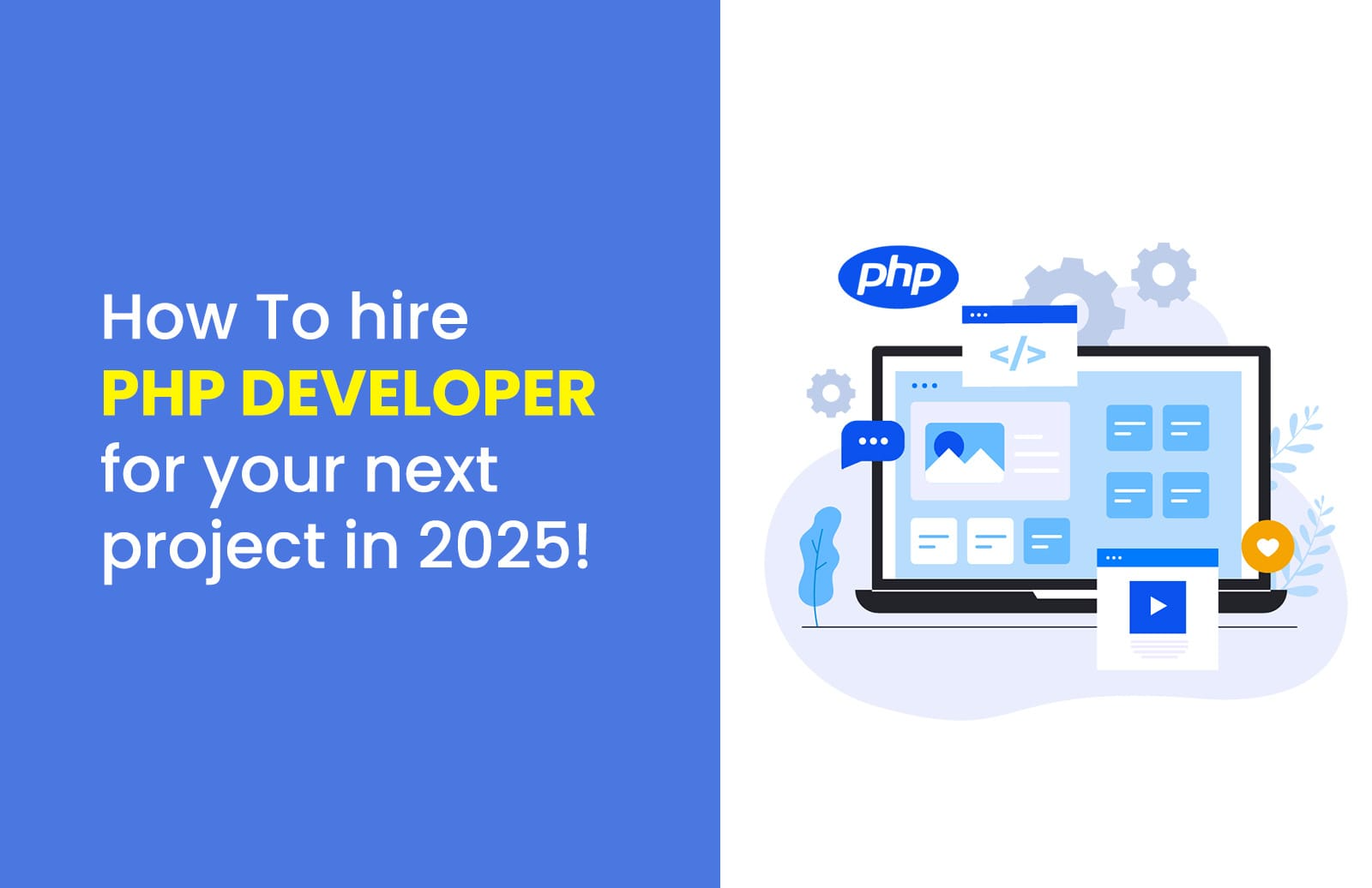How to Hire a PHP Developer for Your Next Project in 2025
PHP is still one of the most often used programming languages for web development as we approach 2025; it drives a significant portion of the Internet. PHP's adaptability, economy, and strong community support help companies in many different sectors continue to depend on it. Navigating the recruiting process properly is vital if you are organizing a new web development project and need to engage and hire dedicated PHP developer.
Every stage, from knowing the necessary competencies to selecting the appropriate recruiting strategy, contributes significantly to identifying the best match for your team for software development services.
This article will discuss technical talents, recruiting strategies, assessment methods, advice for guaranteeing good cooperation, and important factors for to hire a PHP developer in 2025.
Assess Your Project Requirements
The process to hire a PHP developer starts with knowing the particular requirements of your project. Hire a dedicated PHP developer who may work on projects ranging from dynamic website development to e-commerce platform creation to web application development to content management system modification.
For instance, if you create an e-commerce website, you may want a developer proficient in PHP-based Magento or WooCommerce. Specifying the extent of your project will enable you to decide the required degree of knowledge. Do you require someone focused only on back-end development, or are you searching for a full-stack developer with front-end knowledge? Knowing these subtleties can help you reduce the number of applicants with the correct skill set.
Identify the Key Skills for PHP Developers in 2025
Understanding the abilities of a qualified PHP developer can help one make a wise employment choice. The most essential abilities to search for are these:
Technical Skills
By 2025, a competent PHP developer should be familiar with PHP 8. x, the newest variant with performance, security, and syntax improvements. Popular PHP systems like Laravel, Symfony, and CodeIgniter should be known to them as they simplify development and provide built-in tools for handling chores such as routing, authentication, and database administration.
Most PHP developers nowadays also require a basic knowledge of front-end technologies such as HTML, CSS, and JavaScript, particularly if they are working on full-stack projects. Since PHP developers often deal with MySQL, PostSQL, or NoSQL databases like MongoDB, knowledge of databases is also vital.
Soft Skills
Beyond technical ability, soft skills are very important for the success of any developer. Particularly important are problem-solving skills, as PHP programmers often have to find workable answers to problems.
Communication skills are vital, particularly in a remote work environment where developers must explain difficult concepts to stakeholders who may not be acquainted with technical jargon. Equally crucial are time management and adaptation, which help developers stay current with new technologies and properly handle their jobs.
Choose the Right Hiring Model
When adding a PHP developer to your software development services team, you need to weigh many recruiting strategies with different benefits and drawbacks:
In-house Developers
Hiring an internal developer might be your best choice if you have a long-term project or many projects that require continuous PHP knowledge. Usually more closely linked to your team and company culture, in-house developers may improve cooperation and alignment with your corporate objectives. A committed developer also facilitates more direct control and speedier communication.
Freelance PHP Developers
For quick jobs or specialized work, freelancers are perfect. Using sites like Upwork, Freelancer, and Toptal, you may find a worldwide pool of PHP developers with different degrees of experience and pricing. Freelancers provide flexibility on a project-by-project basis, and you are free from the obligation to keep them after the project is over.
PHP Development Agencies
Hiring an agency might be appropriate if you have a complicated or large-scale project requiring several skill sets. Agencies usually comprise teams of developers, designers, and project managers and handle all facets of development, from planning and design to coding and testing.
Evaluate Candidates' Skills and Experience
Finding the appropriate match depends on evaluating the abilities and expertise of the possible applicants. These guidelines will assist you to assess their competency:
Portfolio Review
A developer's portfolio offers an understanding of their prior work and experience. Search for initiatives with your level of scope, as they will help you understand how they may handle your project. If your project includes e-commerce, for instance, go over any relevant projects in the applicant's portfolio and evaluate their usability and functionality.
Technical Assessment
One efficient approach to determining a candidate's PHP competency is to conduct a coding exam or technical interview. Create tests demonstrating the candidate's knowledge of PHP foundations and experience with frameworks, databases, and APIs. To assess the candidate's problem-solving skills, you may also ask them to work on a project-related issue they are likely to face.
Soft Skills Evaluation
Ask questions in the interview that expose the candidate's communication style, time management techniques, and capacity for performance under pressure. For instance, you may ask them to outline a difficult project they worked on and their approach to it. Pay close attention to their communication style, as it will help you determine how suited they are for your team and workplace.
Consider Cultural Fit and Long-term Collaboration
Apart from technical abilities, a good working relationship depends on a candidate's cultural fit. Cultural fit covers values, approach to work, and capacity for productive group projects.
If you are employing an in-house developer, be sure their values complement your business's goals and that they will fit your working surroundings. Finding people or teams who fit your vision and can adjust to your process helps even when you deal with agencies or freelancers.
Finalize the Hiring Process and Onboarding
Once you've selected a candidate, finalize the hiring details. Discuss the project scope, timelines, and deliverables to ensure everyone is aligned. If hiring a freelancer or agency, outline the contract terms, including payment structure and milestones.
To facilitate a smooth onboarding process, provide the developer access to necessary tools, documentation, and resources. Introduce them to the team and set up any required accounts for project management, version control, and communication tools. A well-organized onboarding process can help the developer integrate quickly and start contributing to your project.
Monitor Progress and Provide Ongoing Feedback
As the project progresses, maintain regular check-ins to monitor progress and address any challenges—schedule milestone reviews to evaluate deliverables and provide constructive feedback. Open communication will help the developer stay on track and allow you to make necessary adjustments.
Recognizing and celebrating achievements can boost morale and reinforce a sense of accomplishment, motivating the developer to maintain their performance throughout the project.
Conclusion
Hiring a PHP developer for your project in 2025 involves a blend of strategic planning, technical evaluation, and consideration of cultural fit. By defining your project needs, identifying essential skills, exploring various hiring options, and assessing candidates' capabilities, you'll be well-equipped to find a developer who meets your requirements. Whether you choose an in-house developer, freelancer, or agency, the key to a successful collaboration lies in clear communication, regular feedback, and a shared commitment to achieving your project goals. With the right PHP developer on board, you can bring your vision to life and build a web solution that drives success for your business.









